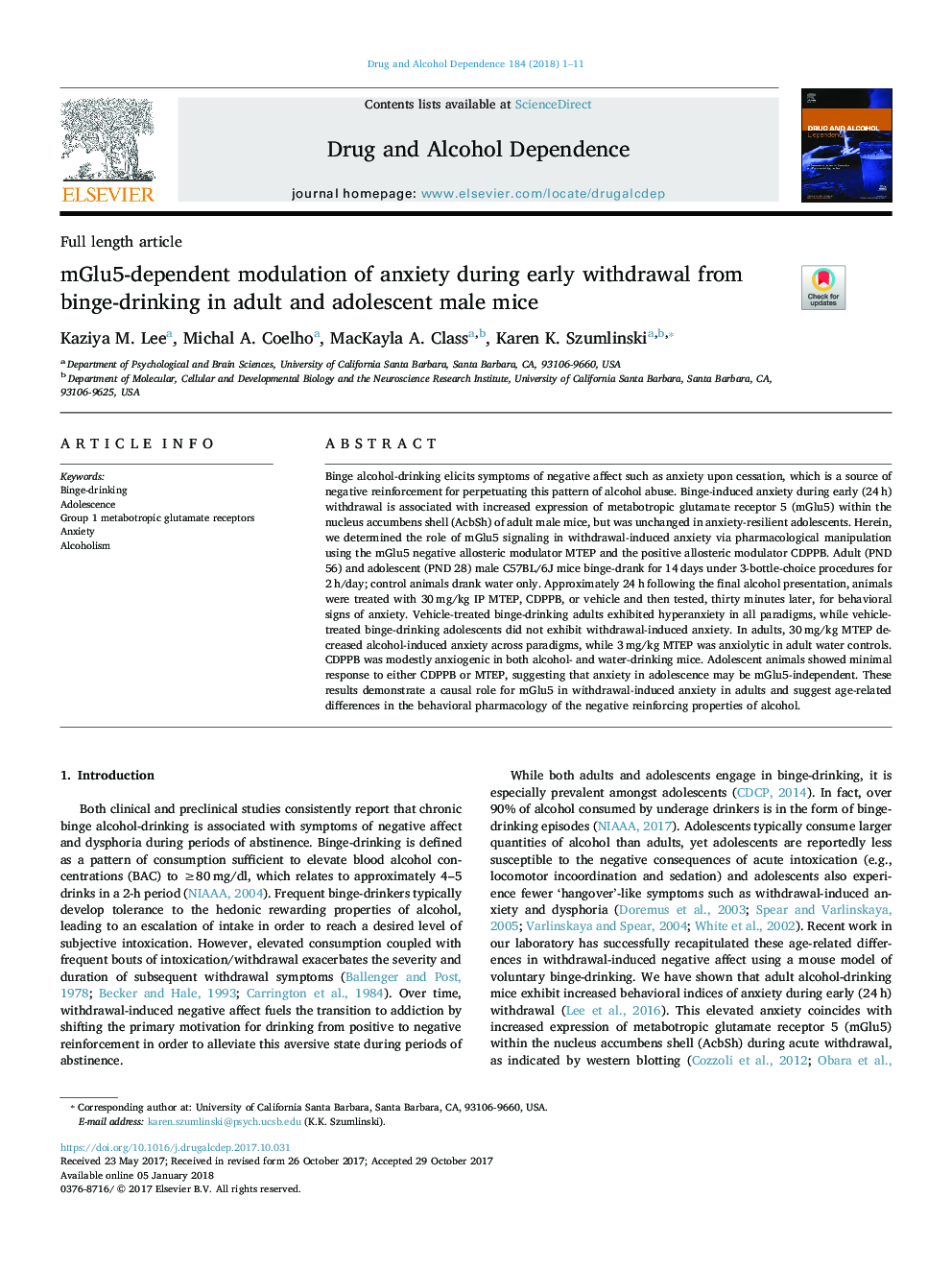| Article ID | Journal | Published Year | Pages | File Type |
|---|---|---|---|---|
| 7503169 | Drug and Alcohol Dependence | 2018 | 11 Pages |
Abstract
Binge alcohol-drinking elicits symptoms of negative affect such as anxiety upon cessation, which is a source of negative reinforcement for perpetuating this pattern of alcohol abuse. Binge-induced anxiety during early (24â¯h) withdrawal is associated with increased expression of metabotropic glutamate receptor 5 (mGlu5) within the nucleus accumbens shell (AcbSh) of adult male mice, but was unchanged in anxiety-resilient adolescents. Herein, we determined the role of mGlu5 signaling in withdrawal-induced anxiety via pharmacological manipulation using the mGlu5 negative allosteric modulator MTEP and the positive allosteric modulator CDPPB. Adult (PND 56) and adolescent (PND 28) male C57BL/6J mice binge-drank for 14â¯days under 3-bottle-choice procedures for 2â¯h/day; control animals drank water only. Approximately 24â¯h following the final alcohol presentation, animals were treated with 30â¯mg/kg IP MTEP, CDPPB, or vehicle and then tested, thirty minutes later, for behavioral signs of anxiety. Vehicle-treated binge-drinking adults exhibited hyperanxiety in all paradigms, while vehicle-treated binge-drinking adolescents did not exhibit withdrawal-induced anxiety. In adults, 30â¯mg/kg MTEP decreased alcohol-induced anxiety across paradigms, while 3â¯mg/kg MTEP was anxiolytic in adult water controls. CDPPB was modestly anxiogenic in both alcohol- and water-drinking mice. Adolescent animals showed minimal response to either CDPPB or MTEP, suggesting that anxiety in adolescence may be mGlu5-independent. These results demonstrate a causal role for mGlu5 in withdrawal-induced anxiety in adults and suggest age-related differences in the behavioral pharmacology of the negative reinforcing properties of alcohol.
Related Topics
Life Sciences
Neuroscience
Behavioral Neuroscience
Authors
Kaziya M. Lee, Michal A. Coelho, MacKayla A. Class, Karen K. Szumlinski,
